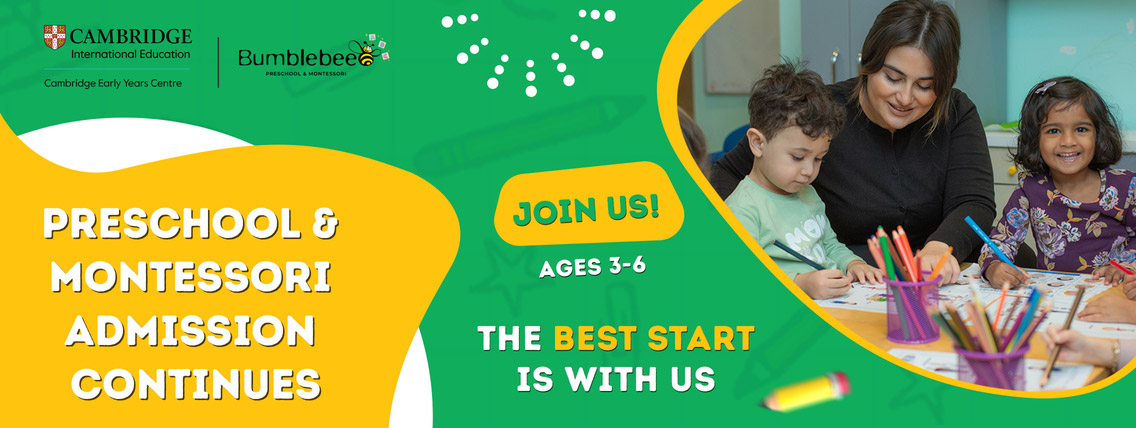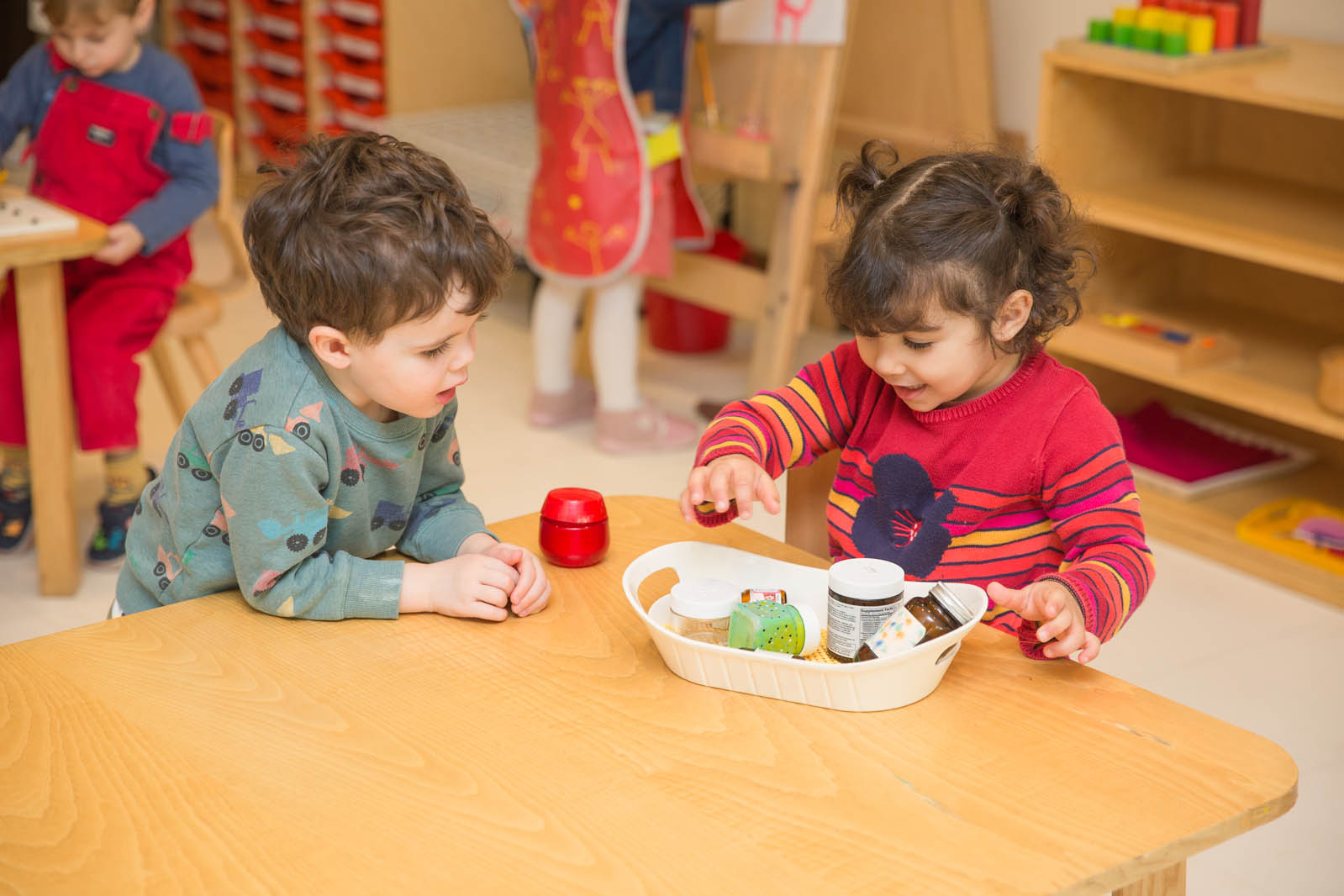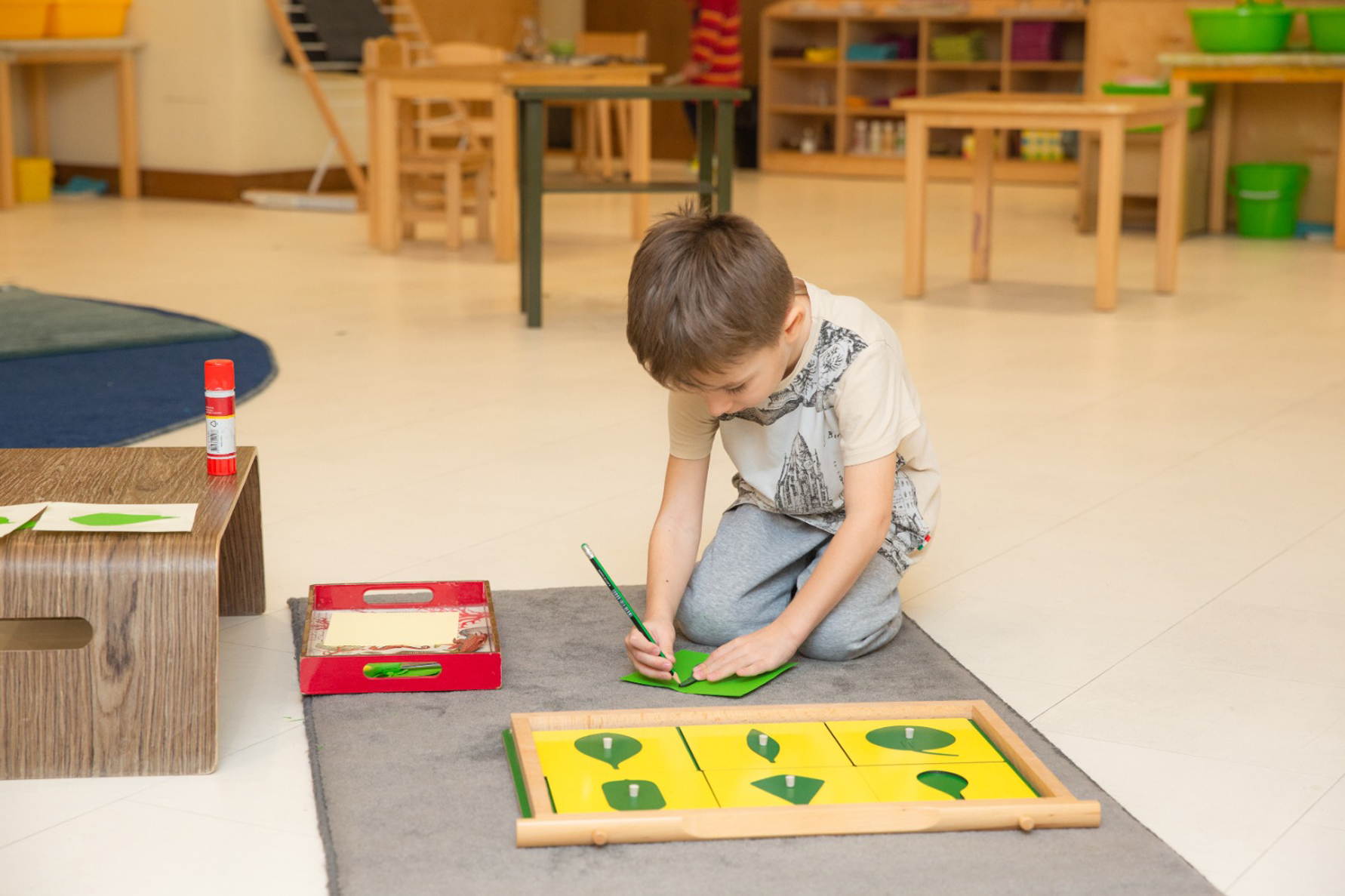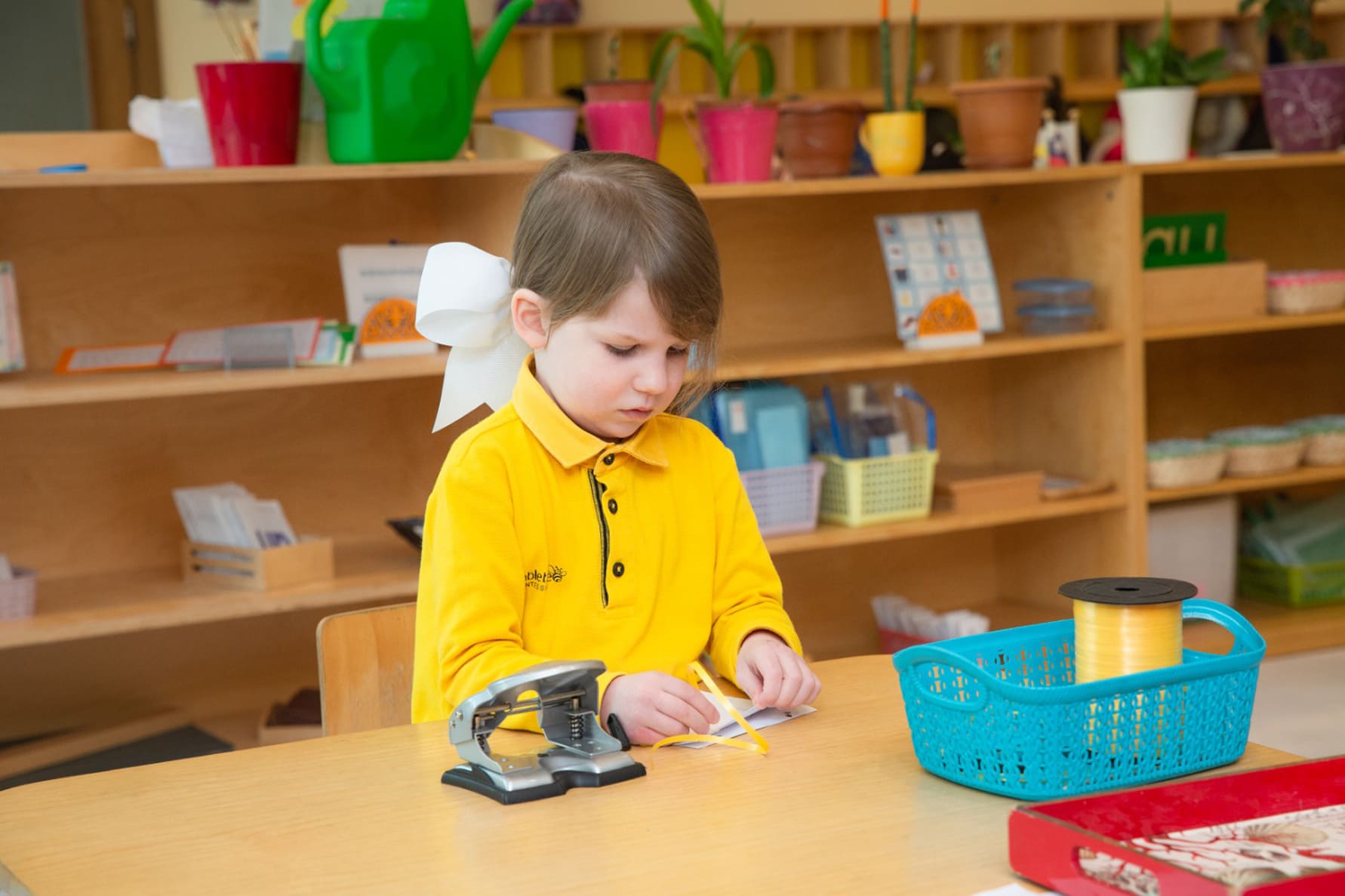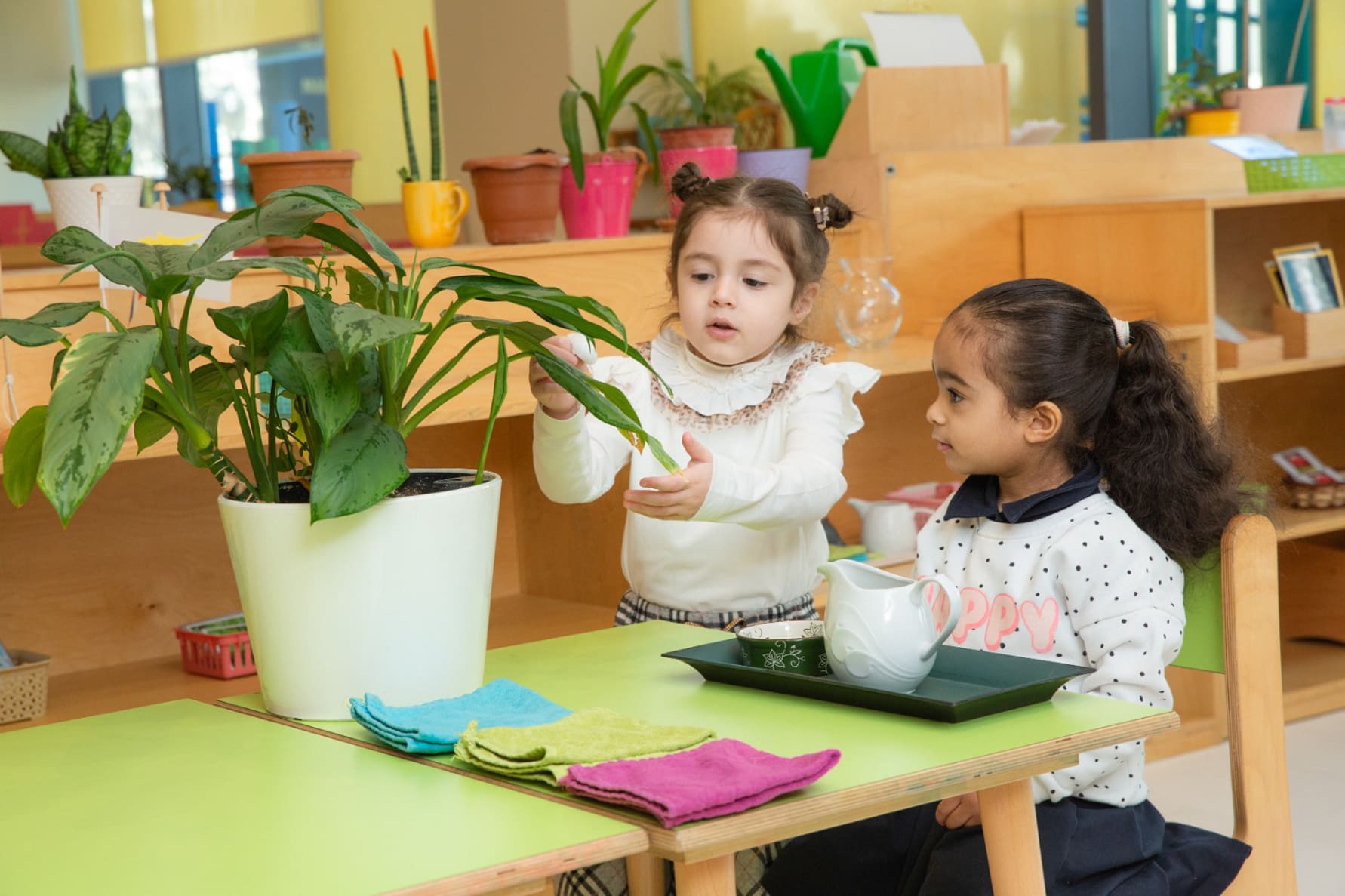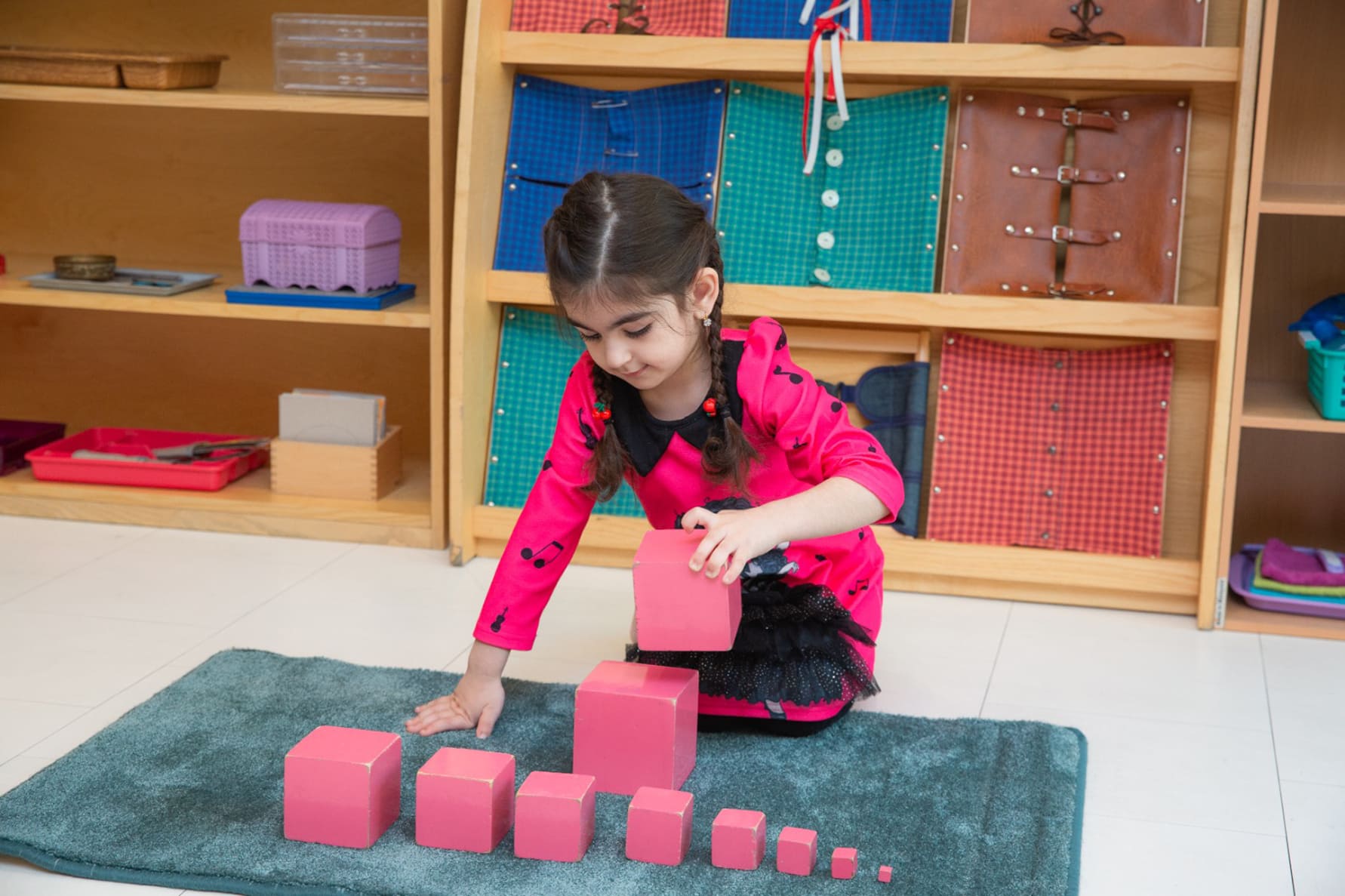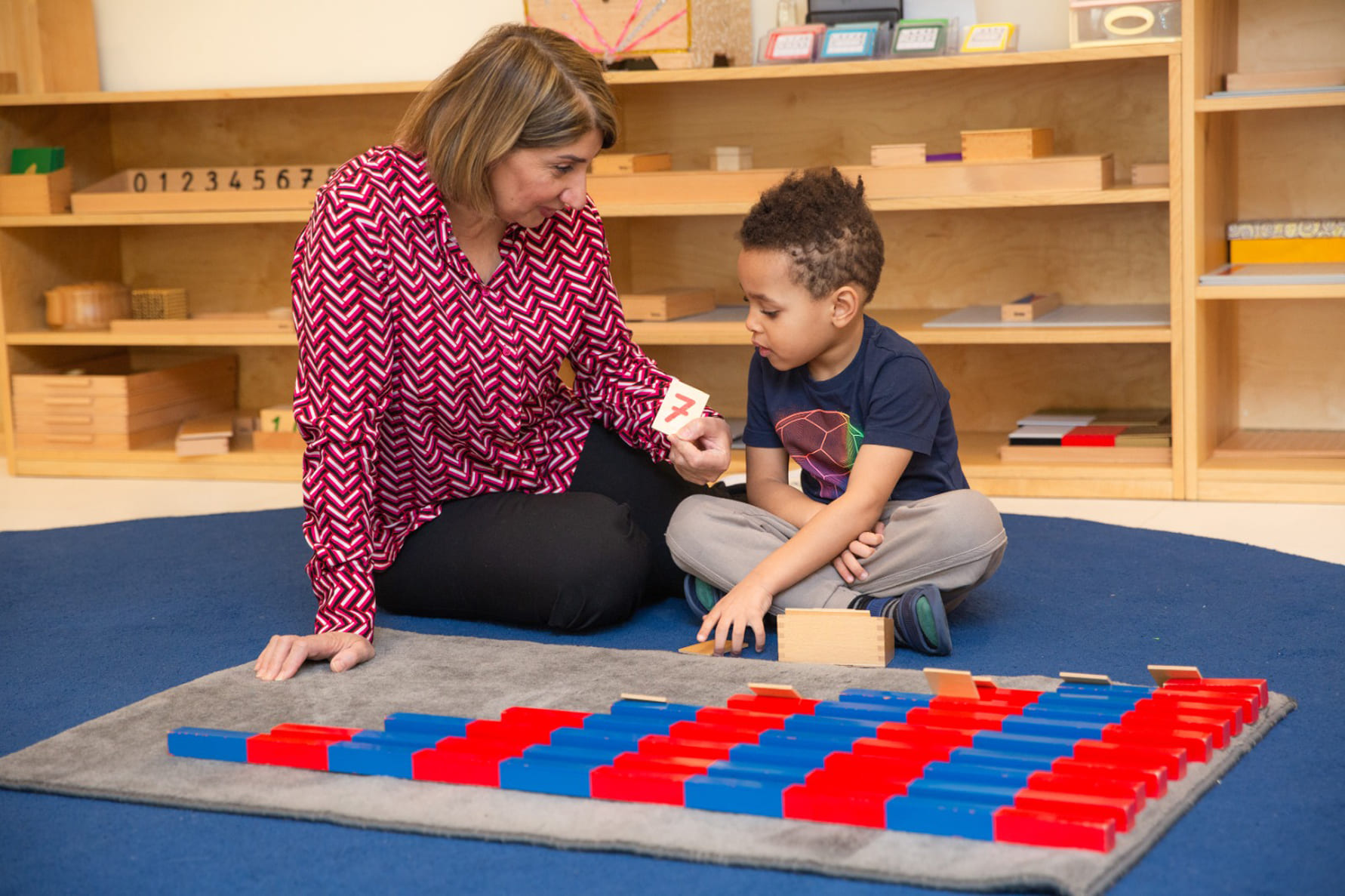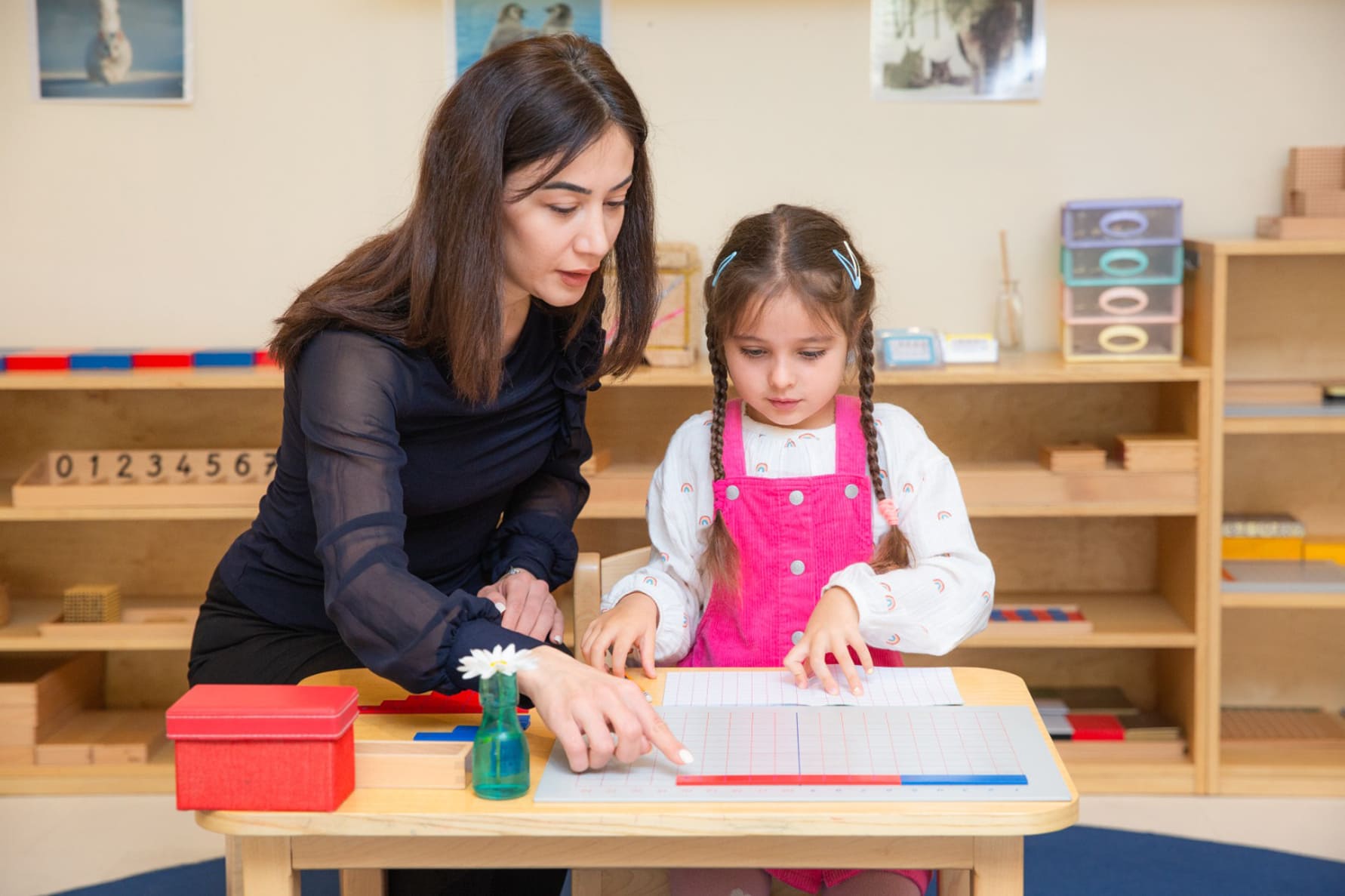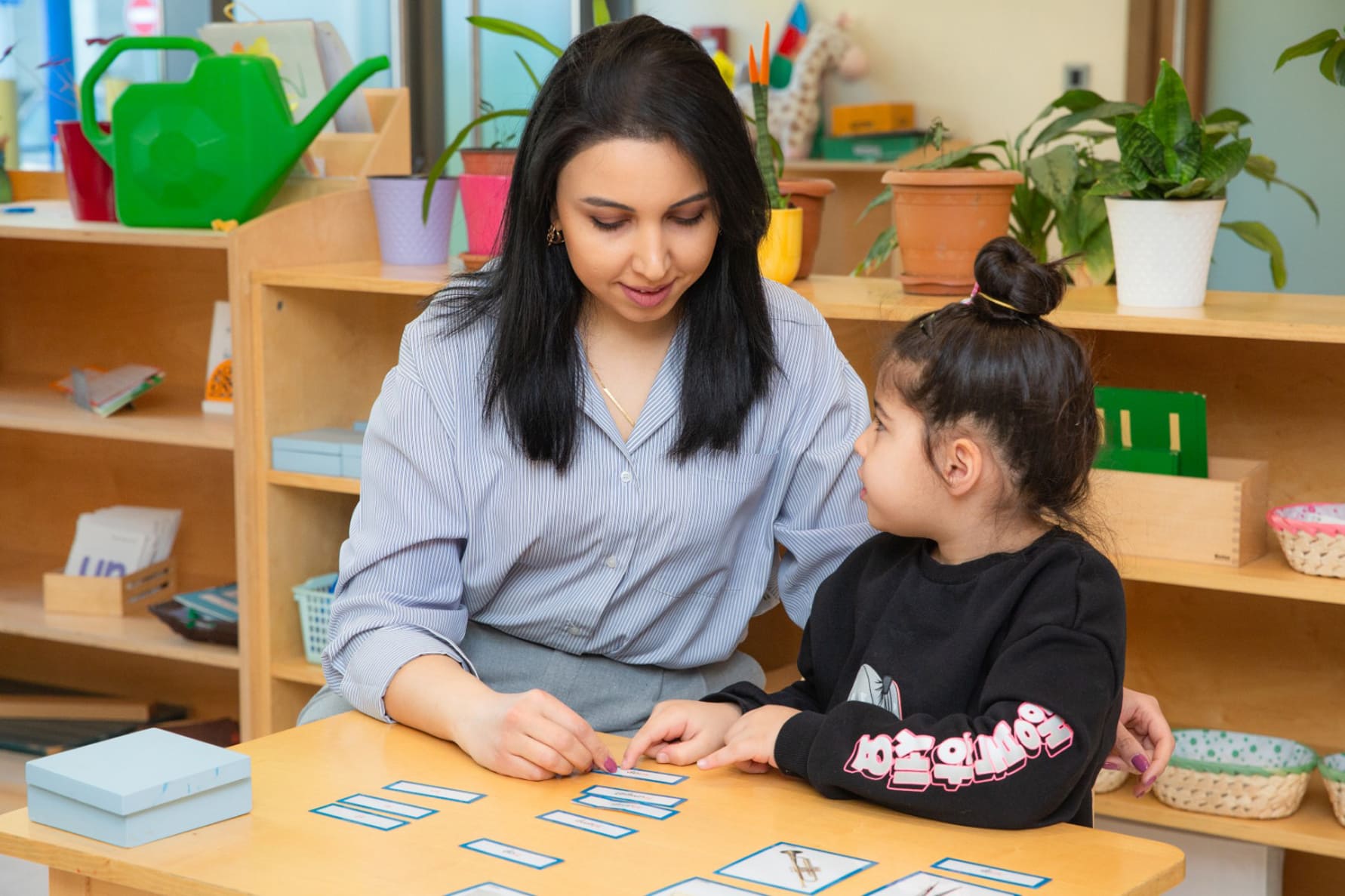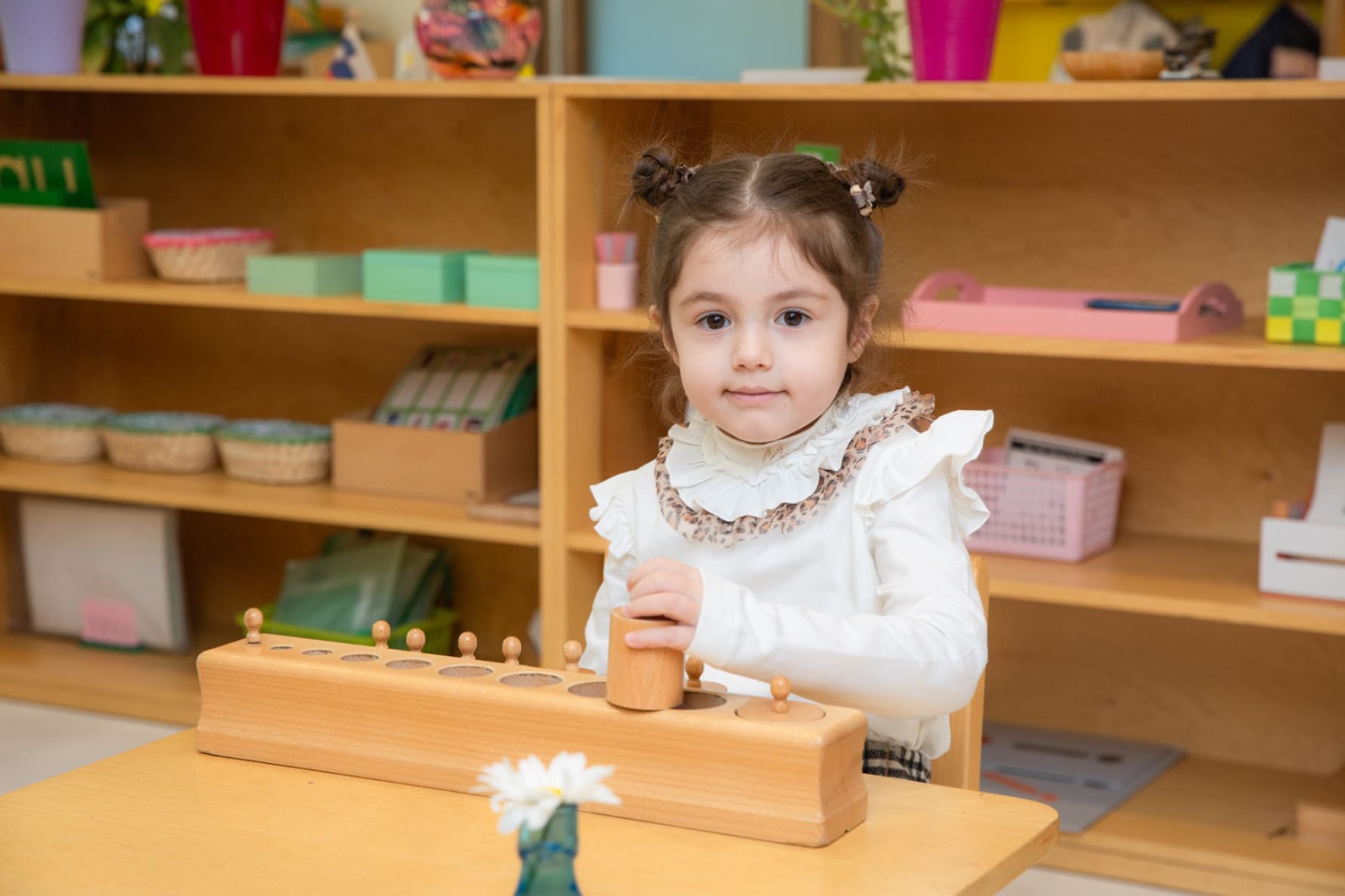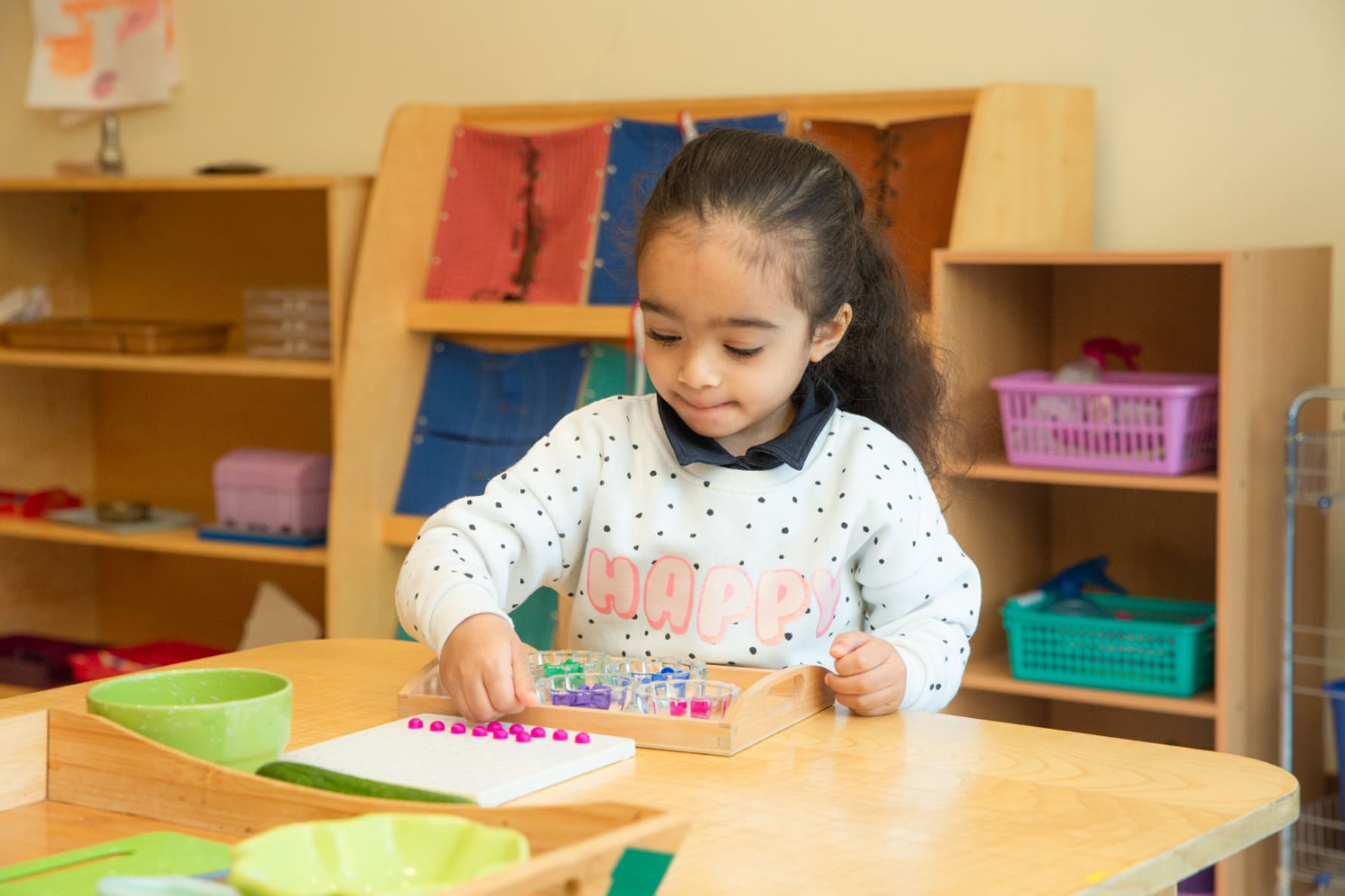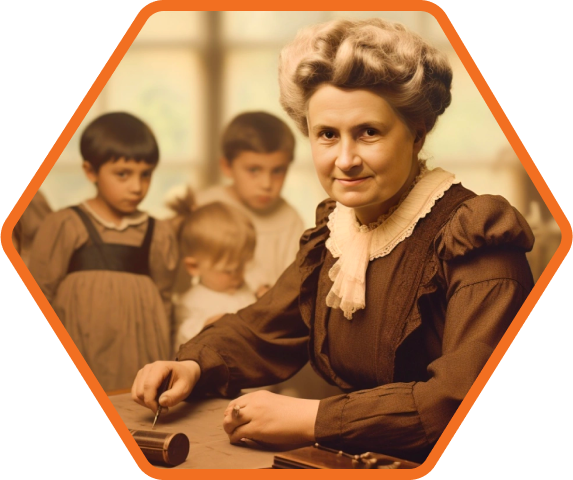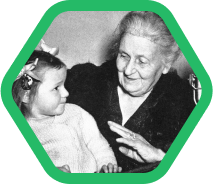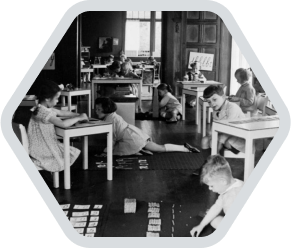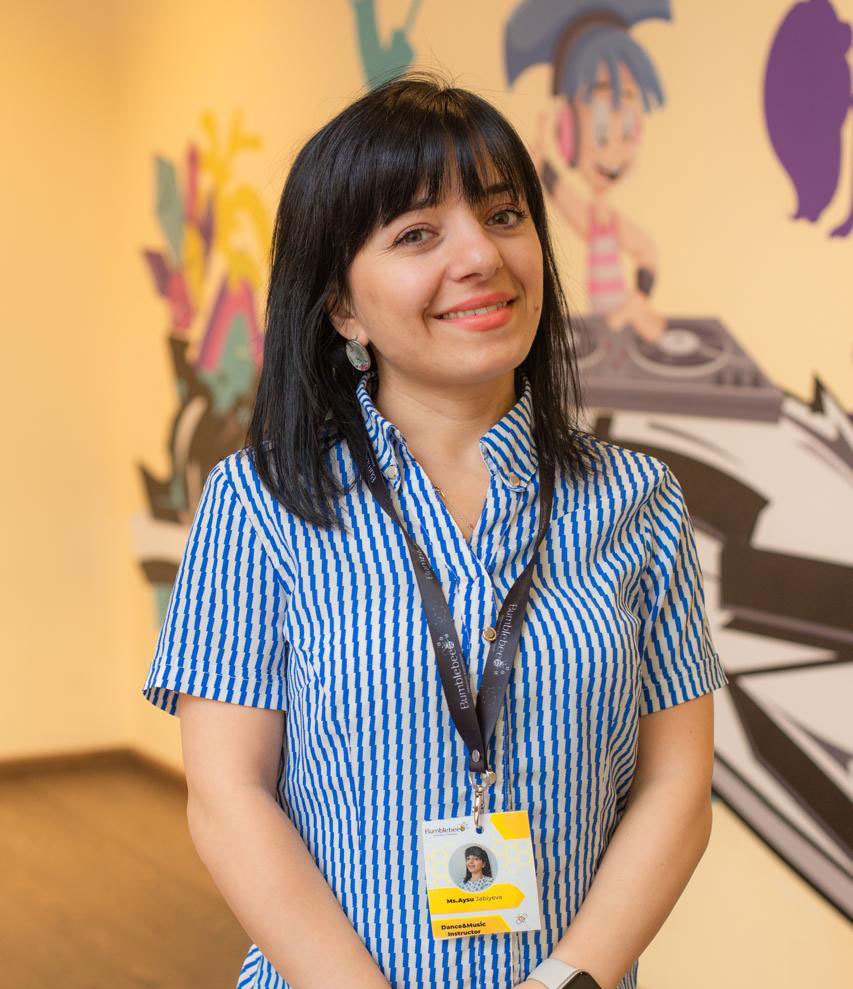About Montessori
Montessori Practical Life
The initial activities that children participate in are crucial for developing their ability to care for themselves and their surroundings. This phase in the curriculum creates a connection between home and nursery. These real-life tasks help children cultivate a sense of order, concentration, personal pride, independence, respect for others, fine motor skills, grace and courtesy, confidence, and self-esteem. Practical life activities are pivotal in steering children toward independence, allowing them to proudly say, “I can do it myself.” The activities are grouped into four main categories:
- Preliminary Activities and Body Movement: These focus on basic movements and skills, providing the foundation for more complex tasks and helping children develop coordination and control over their bodies.
- Care of Self: This category includes activities that teach children how to manage their personal needs, such as dressing, hand washing, and brushing teeth, fostering independence and self-reliance.
- Care of the Environment: Activities in this group involve children in maintaining and caring for their surroundings, such as cleaning, gardening, and organizing, helping them develop responsibility and respect for their environment.
- Grace and Courtesy: These activities emphasize social interactions and manners, teaching children how to interact politely and respectfully with others.
Montessori Sensorial
A child's initial learning experiences are gained through their senses of sight, touch, taste, smell, and hearing. Sensorial exercises enable children to understand their world through the sensory information they receive from their environment, laying the foundation for intellectual development by refining their senses and enhancing cognitive skills. The essential Montessori sensorial concepts and activities include:
- Sensitive Periods and the Senses: Recognizing times when children are particularly receptive to learning through their senses.
- Development, Characteristics, and Benefits of Sensorial Materials: Understanding how these materials aid sensory refinement and cognitive growth.
- Sensorial Activities and Methods of Presentation: Techniques for introducing and engaging children with sensorial activities.
- The Three-Period Lesson: A structured approach to teaching new concepts through introduction, association, and recall.
- Nomenclature Cards: Tools for building vocabulary and knowledge through visual and textual representation.
- Visual Activities: Exercises that enhance visual perception and discrimination.
- Tactile Activities: Tasks that develop the sense of touch and texture differentiation.
- Auditory Activities: Activities aimed at refining hearing and sound recognition.
- Olfactory Activities: Exercises that focus on the sense of smell and scent differentiation.
Montessori Language Arts
Language development is essential for overall human growth. In the Montessori classroom, there is a wealth of oral language opportunities and materials that help children develop confidence and skill in expressing themselves. This foundation supports the natural progression to written expression and reading skills. The program begins with oral language development, moves on to associating sounds with symbols, and includes grammar, guiding the child toward fluent reading. Key topics and activities include:
- Oral Language Activities: These activities build a wide range of skills, focusing on vocabulary enrichment, language training, visual discrimination, sound games, and classification.
- Natural Development of Writing Before Reading: This approach fosters fine motor skills and sound awareness, emphasizing that writing development precedes reading.
- Montessori Language Materials and Activities: This includes the use of Sound Pouches and Games, Metal Insets, Sandpaper Letters, and the Movable Alphabet.
- Sequential Phonetic Reading Program: This program includes comprehensive materials for the Pink, Blue, and Green series, as well as action words and sight words.
- Parts of Speech: Materials and activities introduce and reinforce nouns, articles, adjectives, conjunctions, prepositions, verbs, and adverbs.
- Creative Writing: Encouraging and supporting children in creative writing activities.
Montessori Mathematics
Mathematics begins with introducing pre-math concepts such as sorting, matching, and counting. Through hands-on, incremental learning, children build on this foundation to understand the decimal system, numbers up to 100, and to solve four-digit addition, subtraction, multiplication, and division problems. The activities use Dr. Montessori’s carefully designed concrete materials to help children gradually and concretely grasp abstract mathematical concepts. Key Montessori concepts and activities include:
- The History of Mathematics: Exploring the development and importance of mathematical ideas.
- Presenting Mathematics Activities: Methods for introducing math concepts to children.
- Number Rods and Number Cards: Tools for teaching the relationship between numbers and their quantities.
- Sandpaper Numbers: Materials that help children recognize and write numerals.
- Spindle Boxes and Math Step Board: Devices for teaching counting and the concept of zero.
- Decimal System Bead Material: Tools for understanding the decimal system and place value.
- Change (Bank) Game: A game for practicing making exchanges and understanding money.
- Stamp Game: A resource for practicing addition, subtraction, multiplication, and division.
- Short Bead Stair: Materials for teaching counting and numerical relationships.
- Ten, Teen, and Hundred Boards: Boards for teaching counting and number sequences.
- Snake Game: An activity for learning addition and subtraction.
- Skip Counting with Short and Long Chains: Exercises for teaching multiplication and the concept of multiples.
Montessori Culture and Science
The study of Culture and Science in a Montessori school encourages preschool students to explore past and present cultures and to investigate our living planet. Cultural awareness helps children develop self-esteem and identity, while the introduction of the science curriculum fosters an understanding of critical concepts through hands-on discovery. Key elements of this study include:
- Cosmic Education and Peace in Early Childhood: Teaching children about the interconnectedness of the universe and fostering a sense of peace and respect.
- Montessori Activities: Activities such as circle time, the three-period lesson, matching Nomenclature Cards, and exploring the nature table.
- Geography: Exploring physical and cultural geography with tools like Montessori Globes, Land and Water Forms, Puzzle Maps, and Flags of the World.
- History: Understanding the passage of time and appreciating personal history through activities like examining birthdays, personal timelines, family trees, and the changing seasons.
- Zoology: Learning about living and non-living things, the differences between plants and animals, caring for classroom animals, and the five classes of animals.
- Botany: Discovering the role and purpose of plants in the world, with a child-centered curriculum that introduces plant parts using live plants.
- Science: Engaging in exciting, hands-on experiments that involve active participation and trial and error, exploring natural laws such as magnetism, buoyancy, evaporation, chemical reactions, and light and color.
